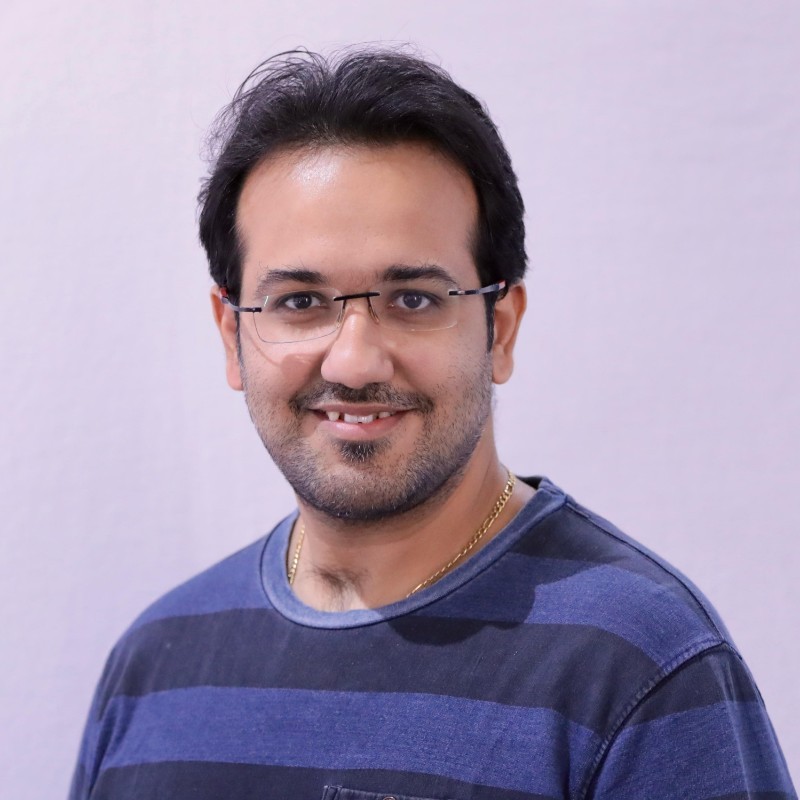Population health helps healthcare providers predict risks of illness in different groups of patients. It is defined as the health outcomes of a group of individuals, including the distribution of such outcomes within the group. These groups are often geographic populations such as nations or communities.

Population health continues to grow in importance, especially as more medical providers deliver diagnosis and treatment information to patients electronically. It also plays an important role in the equitable distribution of healthcare services, resources, and opportunities.
Population health and health equity education are key components of HU’s nursing curriculum. Healthcare is a fundamental right for everyone, and socioeconomic factors, racial and ethnic origins, age, and more should never cause disparity and inequity toward health, said Dr. Nirmal Ahuja, HU Population Health and Health Equity professor.
“Each one of us have a right to enjoy a healthy life and pursue our life plans. Health equity is the state in which everyone can attain full health potential, and no one is disadvantaged from achieving this potential because of social position or any other socially defined circumstance,” he said.
We recently spoke with Ahuja to learn more about population health and health equity and to find out more about Ahuja and his path to HU.
Meet HU Population Health Professor, Dr. Nirmal Ahuja:
Q: Tell us about your educational background? Where did you earn your undergraduate degree and any other education and what did you major in?
A: I am a physician from India, and in 2008, I completed my bachelor’s in Homoeopathic Medicine and Surgery from Maharashtra University of Health Science, India. Further, in 2009, I completed my Master of Public Health from Northumbria University, Newcastle, United Kingdom. My majors during the master’s program were Research and Epidemiology. Lastly, I joined Penn State College of Medicine in 2017 for the Doctor of Public Health program and graduated in August 2020 with a major in Health System Organization and Policy. Apart from this, I have also completed Global Health Certificate from Penn State College of Medicine and a Certificate in Practical Statistics and Medical Research from University College of London, United Kingdom. In addition, I have also completed short courses in Leadership in Healthcare and Operational Management in Healthcare from Indian Institute of Public Health and Indian Institute of Health Management and Research, respectively.
Q: What courses do you teach at HU? Where did you teach/work before arriving to HU? When did you arrive to HU?
A: I joined HU in September 2020, and I would be teaching Population Health and Health Equity course at HU. Prior to joining at HU, I was working as a Graduate Research Assistant at Penn State College of Medicine. As a pre-doctoral student and graduate research assistant, I was engaged in cancer-related health disparities and patient navigation research with Dr. Eugene Lengerich at Penn State Cancer Institute (PSCI). I have worked for patient navigation training & evaluation of cancer patient navigation services at the PSCI. In addition, I have also been advocating for patient navigation policy at several political and non-political forums in Pennsylvania. During my work at PSCI, I had published a first author publication which urged policy-related solution for cancer-related patient navigation to improve the access to Pennsylvania’s complex system of care. This article was published in Journal of Cancer Policy in May 2020. Besides cancer-related research, I was working with Dr. Kristin Sznajder in the Department of Public Health Sciences on global health research project. I was the co-investigator on a mix-method study which aimed to explore the pill burden and choice of drug delivery methods among tuberculosis patients in Mumbai. In addition, I have also been involved with Dr. Benjamin Fredrick in the Department of Family and Community Medicine on an independent study which guides on a valuable methodological step for addressing chronic diseases and suggests in moving from a hyper-focused implementation mode towards a planned, sustainable, and a comprehensive socioecological approach.
Apart from working at Penn State, I have around 10 years of work experience in India. In my previous role with several international and national organizations in India, I oversaw several community-based research and intervention programs in the areas of malnutrition, maternal and child health, infectious diseases (HIV, TB, Dengue and Malaria), tobacco control, and eye care. Besides, I have also served as a civil society representative on a municipal corporation committee to address the concerns of slum areas and participated in the planning and implementation of national health programs and drives. These exciting yet challenging public health projects involved input from and communication with a variety of community stakeholders, including government and non-government organizations, international agencies, board members meticulously monitoring costs, and donors with specifications on how their funds could be used.
Q: Can you briefly tell us about population health and health equity? What does it encompass and what is its relevance/importance?
A: Population health is defined as the health outcomes of a group of individuals, including the distribution of such outcomes within the group. These groups are often geographic populations such as nations or communities. Further, these groups can also vary based on socioeconomic status, race and ethnicity, workplace, age, disability status, or any other defined group. Health equity is equitable distribution of all the services, infrastructure, resources, opportunities, access, availability, affordability etc. across the population irrespective of their origin or above-mentioned groups. There are several factors like socioeconomic status, racial and ethnic origins, age groups, gender, employment status, caste, poverty, environment conditions etc. which lead to various health disparities and health inequity. Health is a fundamental right of every individual and hence, these above-mentioned factors should never be a reason for any kind of disparity and inequity towards health. Each one of us have a right to enjoy a healthy life and pursue our life plans. Health equity is the state in which everyone can attain full health potential, and no one is disadvantaged from achieving this potential because of social position or any other socially defined circumstance.
Q: What are your main areas of interest for conducting research?
A: My integrated doctoral research is aimed at improving the treatment adherence among underserved tuberculosis patients of Mumbai, India. My research interests are particularly motivated by examining various health inequities and social determinants of health that have implications for social and health policy. The areas of my future research focus include implementation research in the field of health equity, chronic diseases prevention and control, cancer-patient navigation, medication adherence, social determinants, disparities in health, and community-based research. I intend to work on population-based studies which focus on developing, implementing, and evaluating community-based interventions for cancer prevention and control. Integrating social support (family and friends) as an intervention strategy for improving the screening and early detection of cancer is one of my primary research interests. In the future, I would also be keen to continue working on patient navigation research and identify its association in improving patient satisfaction outcomes. I also intend to contribute to developing a community engaged research with a common goal towards upscaling preventive and health promotion efforts, improve early detection and screening, and advance overall population health outcomes.
Q: Any special awards or certifications we should know about?
A:
| 2019-2020 | The Graduate Global Program Award for a primary research on, “Social support and medication adherence among tuberculosis patients in urban slums of Mumbai, India – a mixed method study”. |
| 2018-2019 | Department of Public Health Sciences award for a primary research to better understand treatment adherence barriers and preferences of new medical delivery methods among patients infected with pulmonary tuberculosis in urban slums of Mumbai, India – A mixed method study. |
| 2018 | Graham and Elizabeth Jeffries international health award for global health practicum on understanding national tuberculosis program in Sri Lanka. |
| 2019-2021 | Training Advisory Member at Consortium of Universities for Global Health |
Q: What do you think makes HU stand out as a University for our students and our faculty?
A: HU is a relatively young University in the field of health sciences and population health. It has a great potential to establish itself as one of major STEM university in Population Health. At HU, I am involved in developing courses ad certificate programs which has a potential for developing into a full graduate (Masters and Doctoral) level course. Further, at HU we are also establishing ourselves in research and within three months of joining, I have been involved in applying for three grants at Consortium of Universities for Global Health, Robert Wood Johnson Foundation, and Pennsylvania Department of Health, respectively. I believe, my knowledge and previous experiences of program management, implementation, monitoring and evaluation strategies would be extremely beneficial to pursue my research interests and simultaneously build the population health infrastructure at HU.
Q: Where are you from originally? Where do you live now?
A: I am born and raised in Mumbai, India. At present, I stay at Hershey, Pennsylvania.
Q: Any hobbies or activities you can share? Any other life details you would like to share? Family etc.?
A: Coming from a middle-class background in India, I have strong cultural roots and a social upbringing which cultivates an inclusive nature. Having lost my father to cancer at a very young age, I have directly experienced economic uncertainty, which manifested in part as periodic lack of access to healthcare for my father’s treatment and for our education. These life experiences have always been a driving force in my own personal and professional development.
We are a family of three, my spouse is a Business Management graduate, and she would be pursuing (Spring 2021) another MBA in Strategic Leadership in Business from Penn State Harrisburg. I have a two-year-old son which keeps us busy all the time and spending quality time with him is what I love the most. Apart from that, my hobbies are playing and watching Cricket, watching Soccer, watching movies, and listening to Bollywood music.
Q: What are your thoughts on having to switch over to an online model this fall in light of the COVID-19 pandemic in terms of delivering the same quality education to our students?
A: Technology is the future and I believe the COVID-19 pandemic has taught us the importance of using this technology and being prepared for such adverse situations. There should be no barrier to education and online teaching helps us reach people in different parts of the world. There are pros and cons of everything and its tough delivering quality education and holding on to student’s interest for longer period. However, online model is any time a better solution than having students grapple with educational fallout.
For information about Harrisburg University’s nursing programs, visit RN to BSN Nursing Degree program and Nursing Master’s Degree program.
About Harrisburg University
Accredited by the Middle States Commission on Higher Education, Harrisburg University is a private non-profit university offering bachelor and graduate degree programs in science, technology, and math fields to a diverse student body. For more information on the University’s affordable demand-driven undergraduate and graduate programs, call 717.901.5146 or email, Connect@HarrisburgU.edu.
